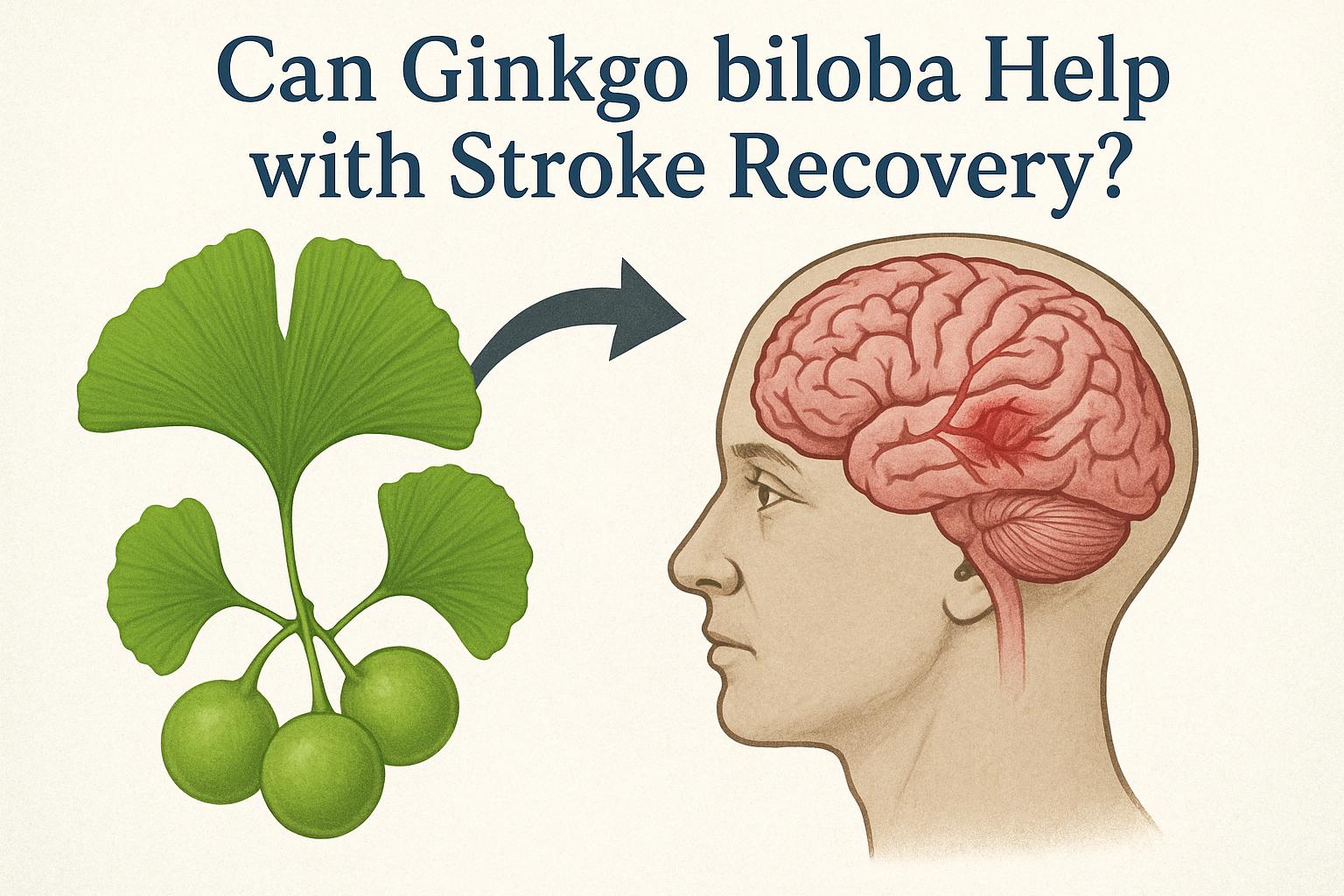Understanding Stroke and Its Aftereffects
A stroke can be defined as a sudden interruption in the blood supply to a part of the brain, which can lead to significant brain cell damage. This type of interruption often results in a cascade of physical, cognitive, and emotional challenges for survivors. The nuances and intricacies of stroke recovery can vary greatly from person to person, thus necessitating personalized approaches that often include a blend of physical therapy, medication, and lifestyle changes. In addition to conventional methods, there has been increased attention towards alternative approaches that could potentially aid in stroke recovery. Among these alternatives, herbal supplements such as Ginkgo biloba have received significant focus.
What Is Ginkgo Biloba?
Ginkgo biloba, often referred to simply as ginkgo, is recognized as one of the oldest living tree species. Its history is deeply rooted in traditional medicine, most notably for enhancing cognitive health and promoting better blood circulation. The extracts derived from its leaves are rich in active compounds like flavonoids and terpenoids. These compounds have been studied for their potential antioxidant properties, which might offer beneficial effects in various health contexts, including cognitive health.
The Potential Benefits of Ginkgo Biloba in Stroke Recovery
One of the central hypothesized benefits of Ginkgo biloba is its potential to enhance blood circulation, particularly within the brain. An improvement in cerebral circulation can be critical during the recovery phase following a stroke, potentially aiding in the healing and regrowth processes. Moreover, the neuroprotective effects that ginkgo allegedly offers may help shield brain cells from further damage post-stroke. Preliminary studies and anecdotal evidence have indicated that some stroke survivors might experience improved cognitive function when using Ginkgo biloba as a supplement. However, it’s important to approach these findings with a degree of skepticism until further validated by more robust research.
Scientific Evidence and Research
The body of scientific research exploring Ginkgo biloba’s effects on stroke recovery is extensive, though often inconclusive. While some clinical trials have found moderate improvements in cognitive functions and overall quality of life among stroke patients who used Ginkgo biloba supplements, others have found the benefits to be negligible or comparable to that of a placebo. This inconsistency in findings highlights the need for further extensive research, guided by stringent methodological standards, to elucidate the efficacy of Ginkgo biloba within the sphere of stroke recovery definitively.
In analyzing scientific literature, a consistent theme emerges: the importance of personalized medicine. Each stroke survivor’s path to recovery is as unique as the individual, meaning that Ginkgo biloba might be more beneficial for some than for others. The varying results from studies underscore the complexity of stroke recovery and the multitude of factors that can influence an individual’s response to supplements and treatments.
Considerations and Precautions
Before a stroke survivor considers incorporating Ginkgo biloba into their recovery regimen, consulting with healthcare providers is imperative. Several potential interactions and side effects render it unsuitable for some individuals. For example, Ginkgo biloba may interact with anticoagulant medications (blood thinners), posing a risk of bleeding complications. Additionally, some individuals may experience adverse effects such as headaches, dizziness, or gastrointestinal discomfort.
Moreover, the importance of following evidence-based medical advice cannot be overstressed. Herbal supplements like Ginkgo biloba may seem attractive due to their natural origin, yet this does not guarantee safety or efficacy. The pharmacological effects of herbal supplements can be as potent as conventional medicines and might lead to unexpected health issues if not properly managed.
For those interested in exploring alternative approaches to stroke recovery, it is crucial to delve into reliable, science-backed resources. These resources, often found through dedicated medical institutions or scholarly articles, can provide robust guidelines and the latest information about stroke recovery and herbal supplements. Engaging with expert sources could be enlightening and instrumental in building a comprehensive recovery plan tailored to individual needs and circumstances.
In conclusion, while Ginkgo biloba might offer potential advantages for stroke recovery due to its purported neuroprotective and circulatory benefits, it is essential to proceed with caution. An integrative approach, combining traditional and alternative methods under the supervision of healthcare professionals, should be considered the safest route. Comprehensive evidence is still required to solidify the standing of Ginkgo biloba in the context of stroke recovery. Meanwhile, ongoing research and exploration in this area remain vital for expanding our understanding and providing optimized care for stroke survivors.

